Written by Dr Regina Garai
The Faculty of Social Sciences and Humanities (FSSH), UNIMAS, successfully hosted the “Building a Better World: School Sustainability Toolkits 2025” Exhibition on 21 November 2025. The exhibition formed part of the CARE (Community Resilience Experiential Learning) Framework and served as a practical component for second-year Development Planning & Management students enrolled in SSR2103 Basic Concepts and Issues in Development course, coordinated by Dr Regina Garai.
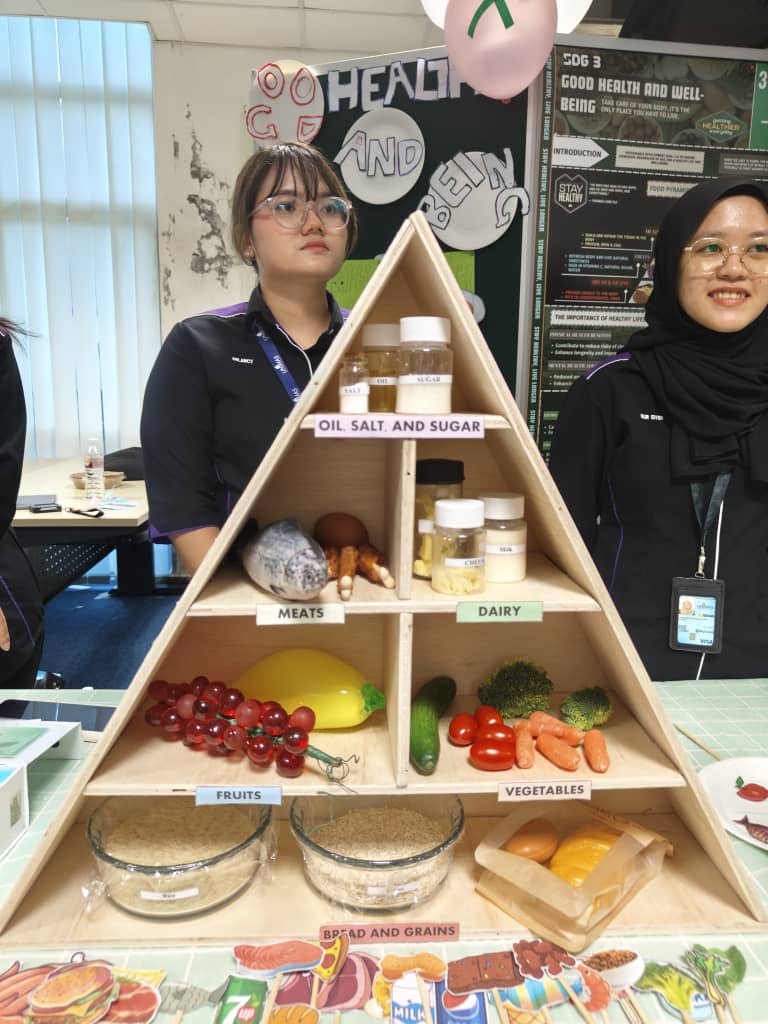
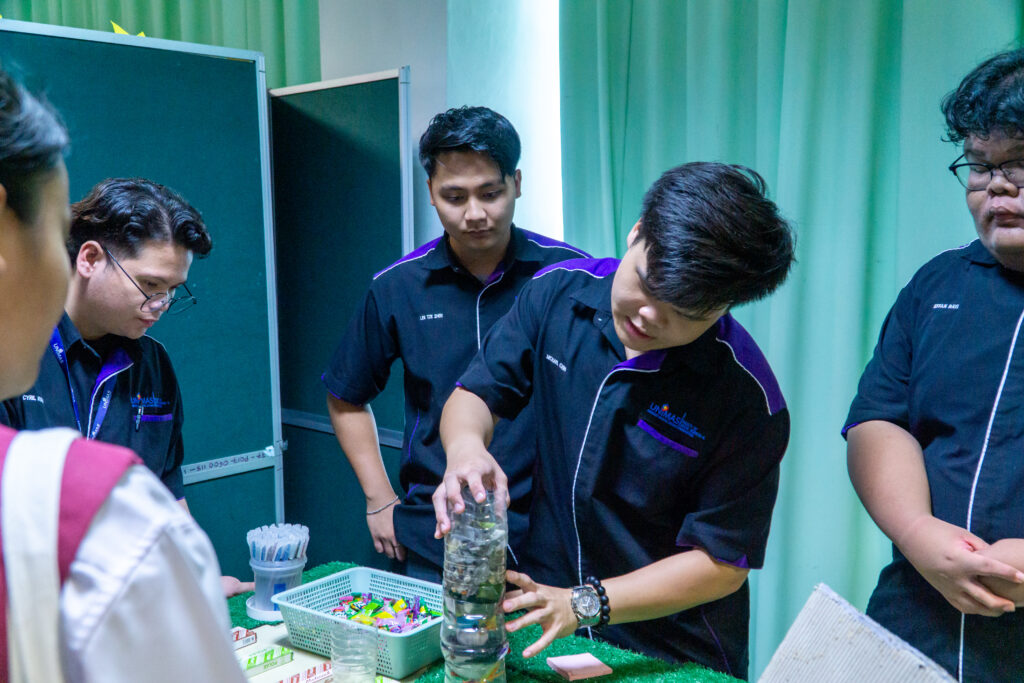
As an extension of the SSR2013 learning activities, students were given the opportunity to apply classroom concepts to real-world settings. They developed youth-friendly approaches to raising SDG awareness, with the entire exhibition conceptualised, designed, and managed by the students themselves. This hands-on project enabled them to translate theory into practice while strengthening essential skills such as planning, communication, and teamwork.
A total of 60 students and 6 teachers from SMK Muara Tuang, Kota Samarahan, led by Cikgu John Lee Yong Kwang, participated in the exhibition. Through a series of creative booths and activities covering all 17 Sustainable Development Goals (SDGs), participants explored how individual and community actions contribute to global sustainability. The secondary school students shared that the interactive displays helped them better understand SDG issues and sparked interest in how they could contribute to positive change.

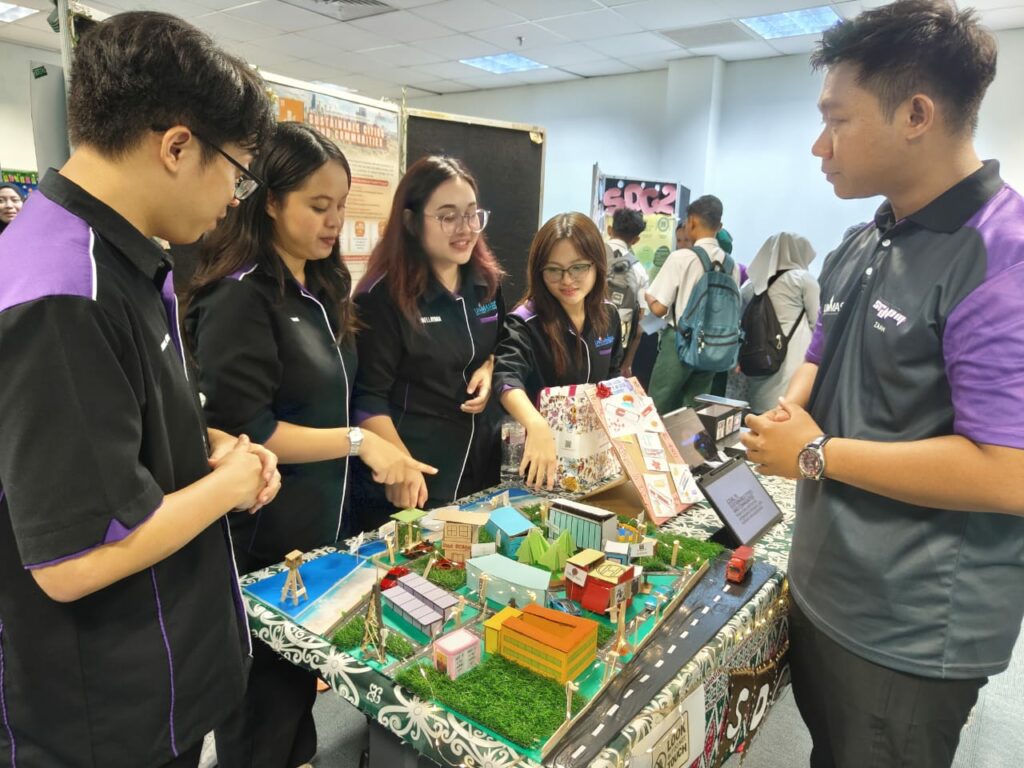
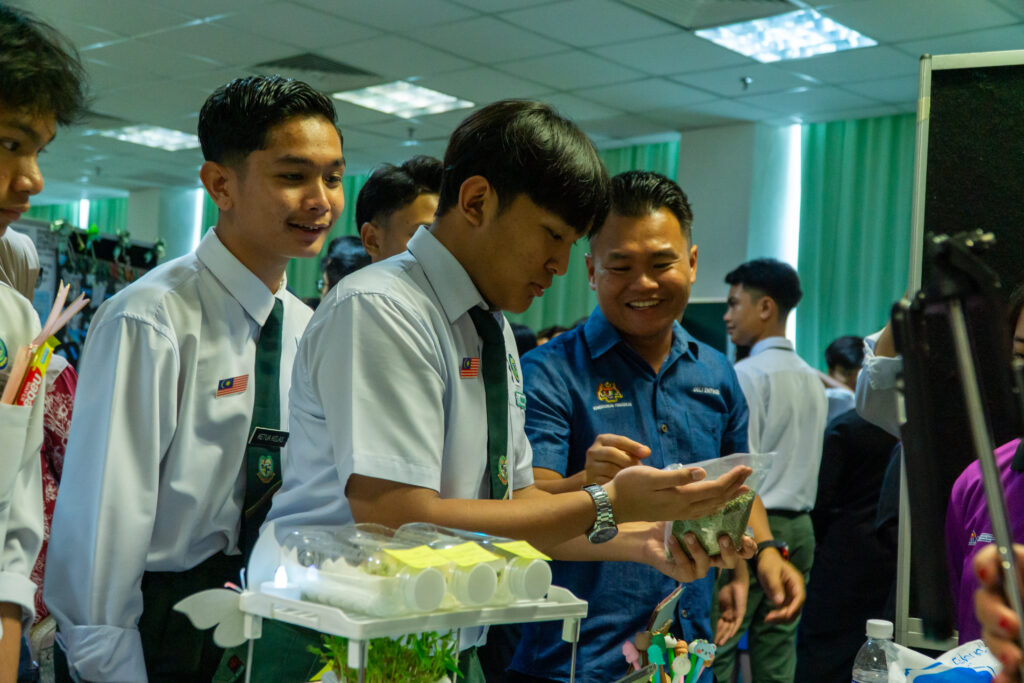
One of the standout booths highlighted responsible consumption by showcasing how everyday materials and fashion choices can make a difference. Students demonstrated the creative repurposing of old denim jeans by transforming them into stylish and functional items such as handbags, purses, and scrunchies, proving that discarded materials can be given a meaningful second life. Alongside this, another booth also promoted fashion thrifting as a sustainable and budget-friendly alternative to fast fashion. Through engaging displays and discussions, the students encouraged visitors, especially young participants, to embrace repurposing, upcycling and thrifting as practical steps toward reducing waste and becoming more responsible, sustainability-conscious individuals. In other words, encouraging simple yet impactful sustainability habits.
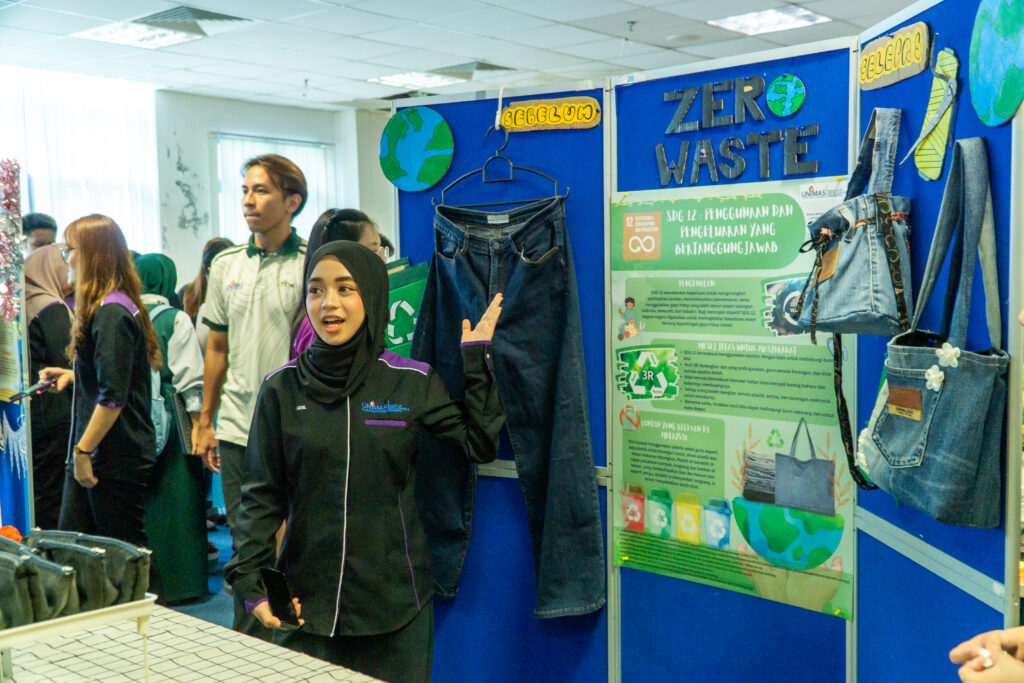
A few booths focuses on clean and renewable energy by demonstrating how electricity can be generated through water turbines, solar panels, and wind power. The students showcased small-scale models that allowed visitors to see how each source works, water turning a mini turbine, sunlight powering a solar module, and wind spinning lightweight blades to produce energy. These demonstrations helped participants understand the basics of renewable energy and why shifting toward clean power is essential for environmental sustainability. These booths successfully inspired students to think about greener energy alternatives and the role individuals and communities can play in supporting SDG 7: Affordable and Clean Energy.
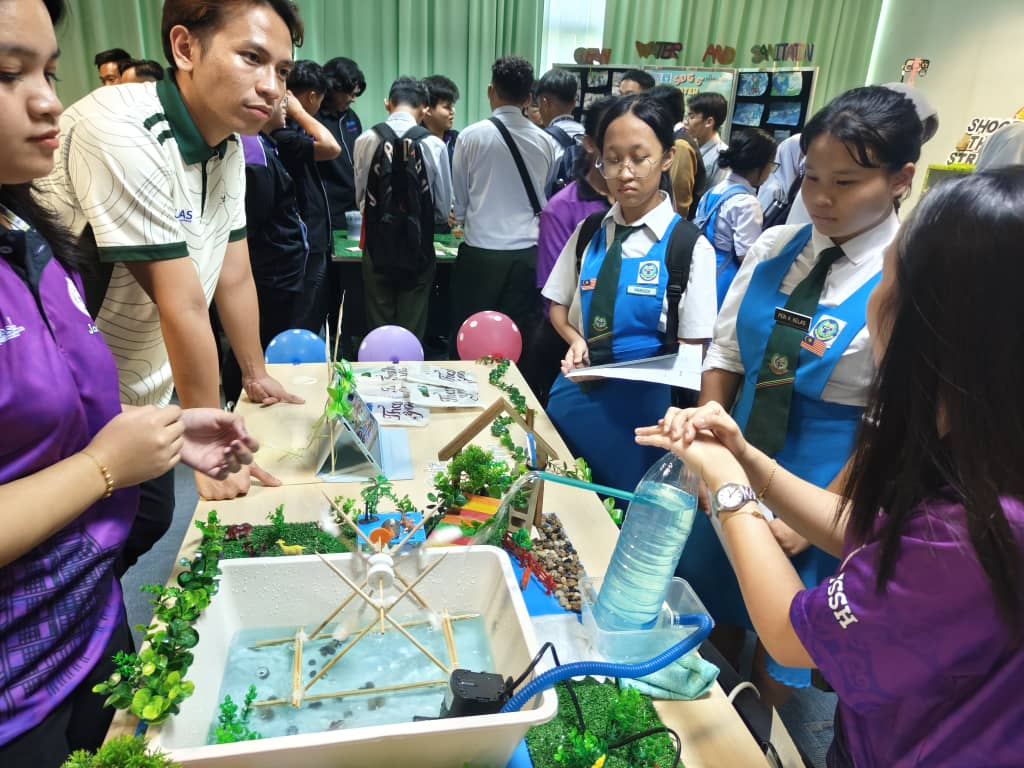
Other booths focused on clean water and sanitation, demonstrating a simple yet effective water filtration system to highlight the importance of SDG 6. Using layered materials such as sand, gravel, charcoal, and fabric, the students showed how contaminated water can be filtered into cleaner, clearer water through basic household-friendly methods. The hands-on demonstration helped visitors understand how filtration works, why clean water is essential for health, and how communities, especially in rural or underserved areas, can benefit from affordable and accessible solutions. These booths successfully connected scientific concepts with real-life needs, emphasising the shared responsibility of ensuring access to clean and safe water for all.
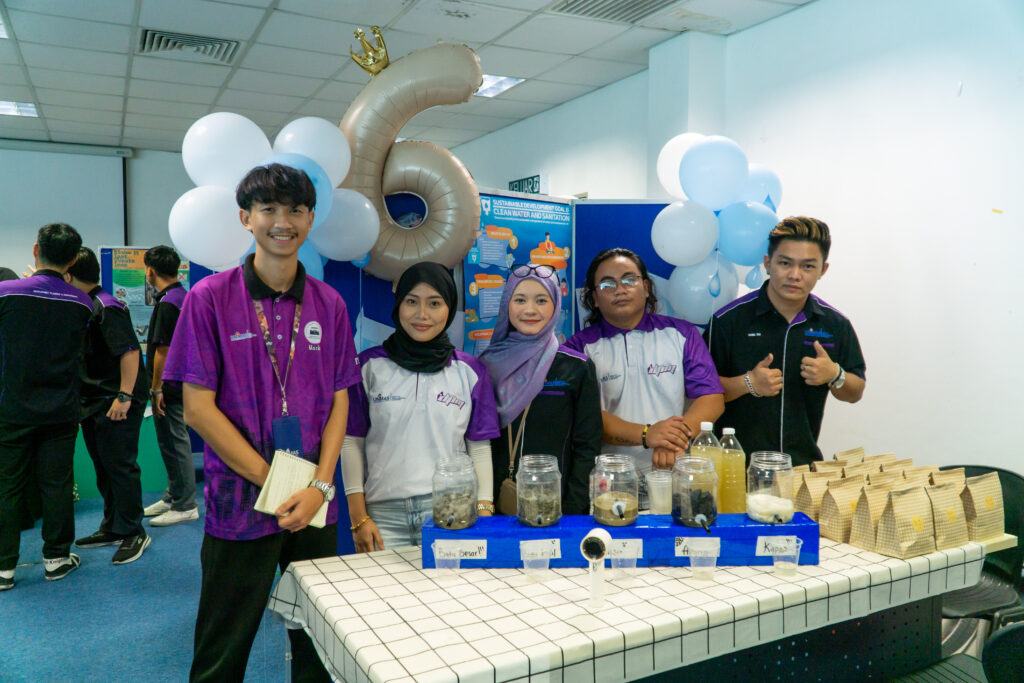
Other lecturers, Siti Khatijah Zamhari and Christopher Perumal, who visited the exhibition, commented that this SDG Exhibition was an excellent way to raise SDG awareness and that students learned by doing in a fun, practical way.
Teachers from SMK Muara Tuang also praised the UNIMAS students’ creativity and passion, noting that they learned a lot from the exhibition. Cikgu John Lee, in his speech after the exhibition, said the ideas and approaches could inspire their own students for future innovation projects and competitions.
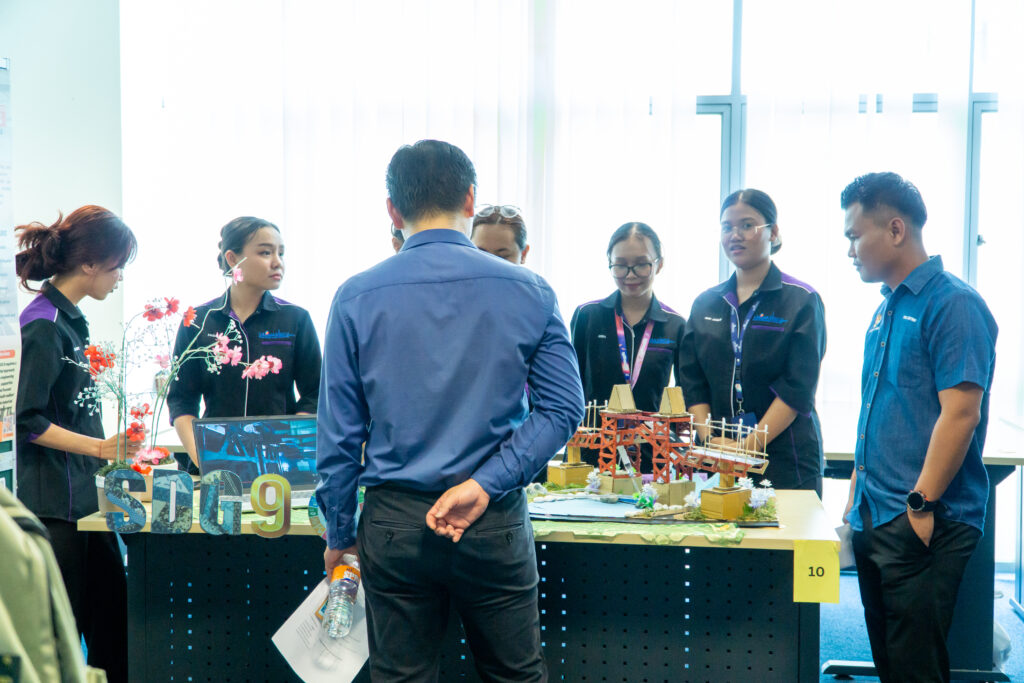
According to Dr Regina Garai, the involvement of school students enhanced the learning experience: “When our students engage with younger participants, messages of sustainability become more relatable and easier to understand.”
Dean of FSSH, Dr Kiky Kirina Abdillah, who also taught SSR2103 course, emphasised the broader significance of the initiative: “By connecting university learning with secondary school participation, this exhibition reinforces UNIMAS’ commitment to nurturing informed, responsible, and future-ready citizens.”
FSSH extends its appreciation to SMK Muara Tuang for their enthusiastic participation and constructive feedback, which further strengthened the impact of this community-focused learning initiative.


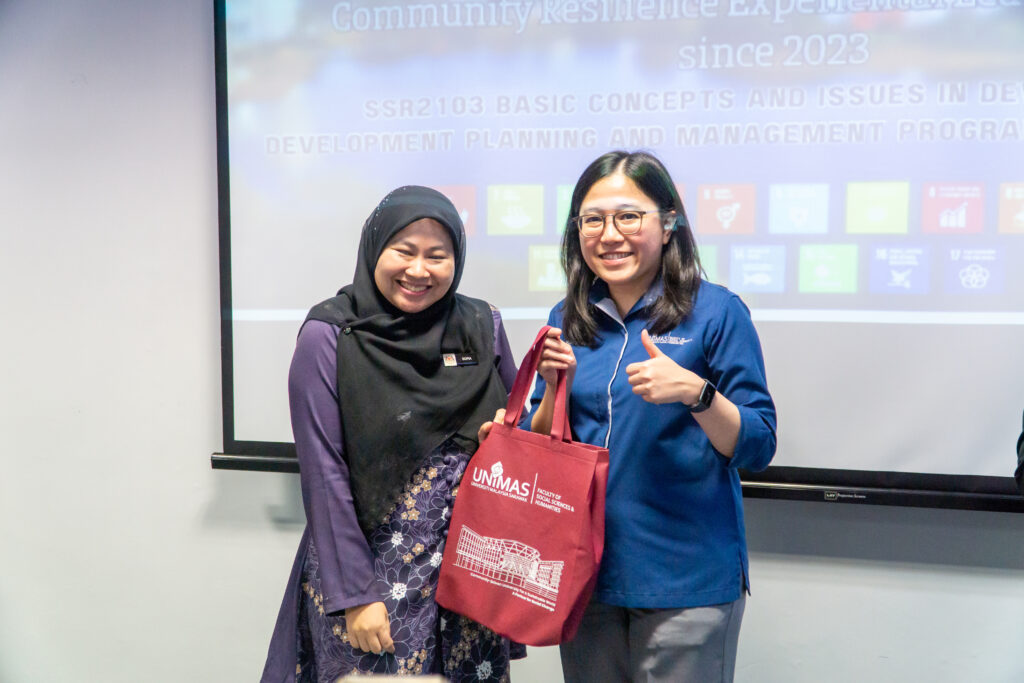
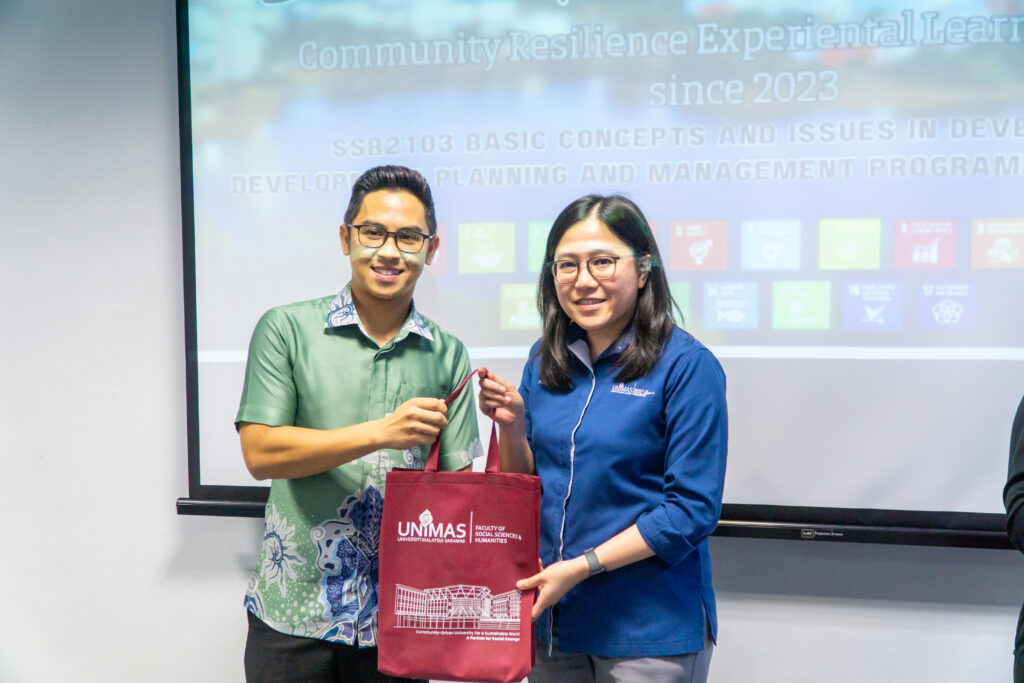

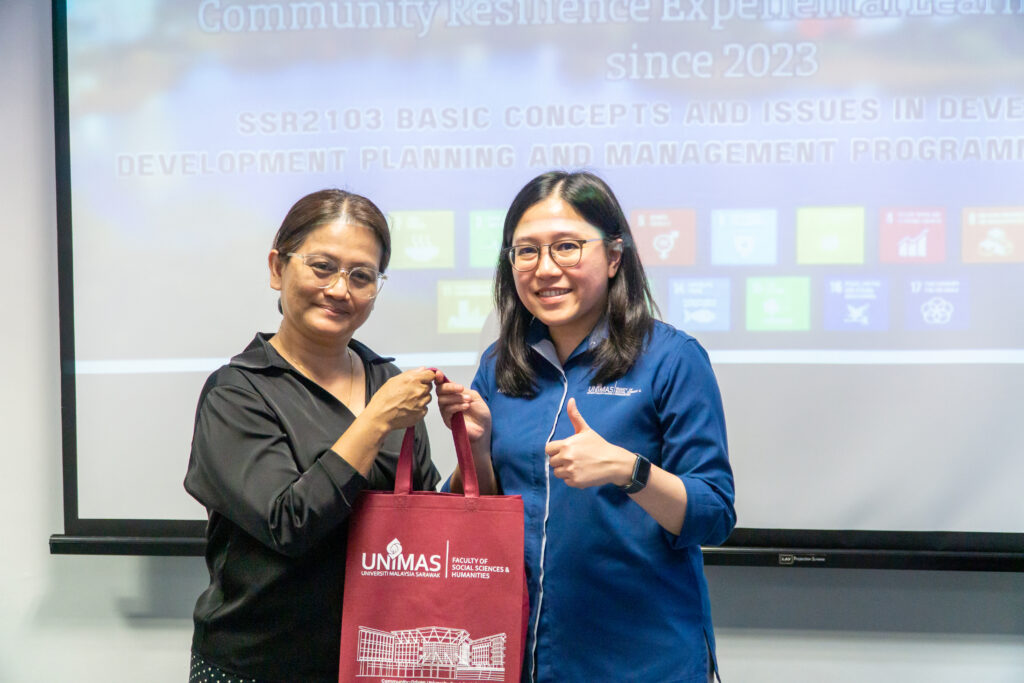

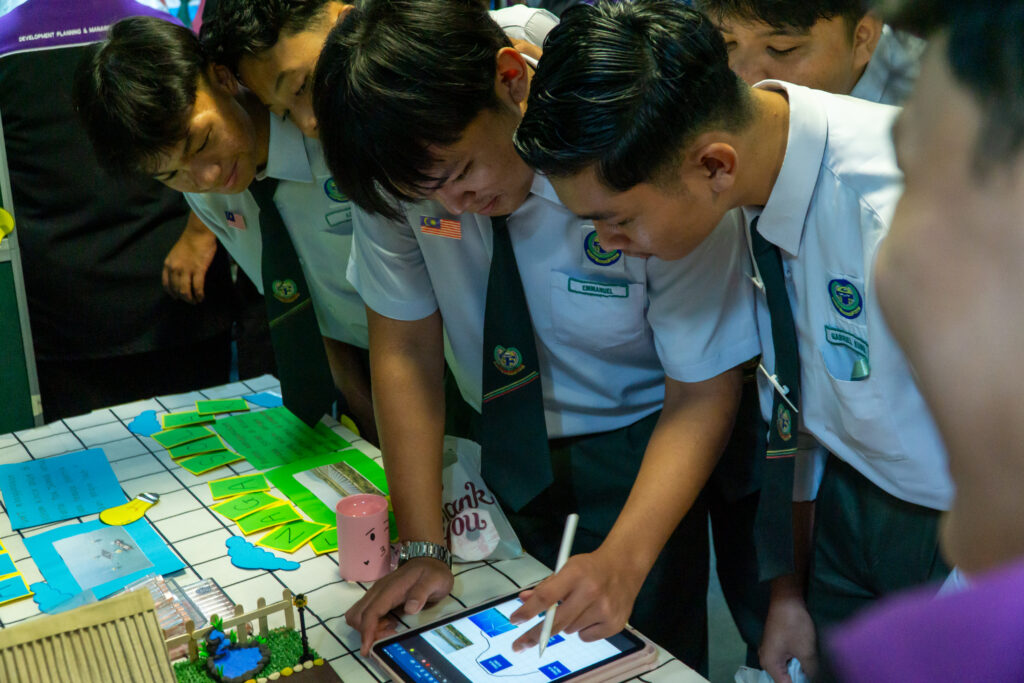
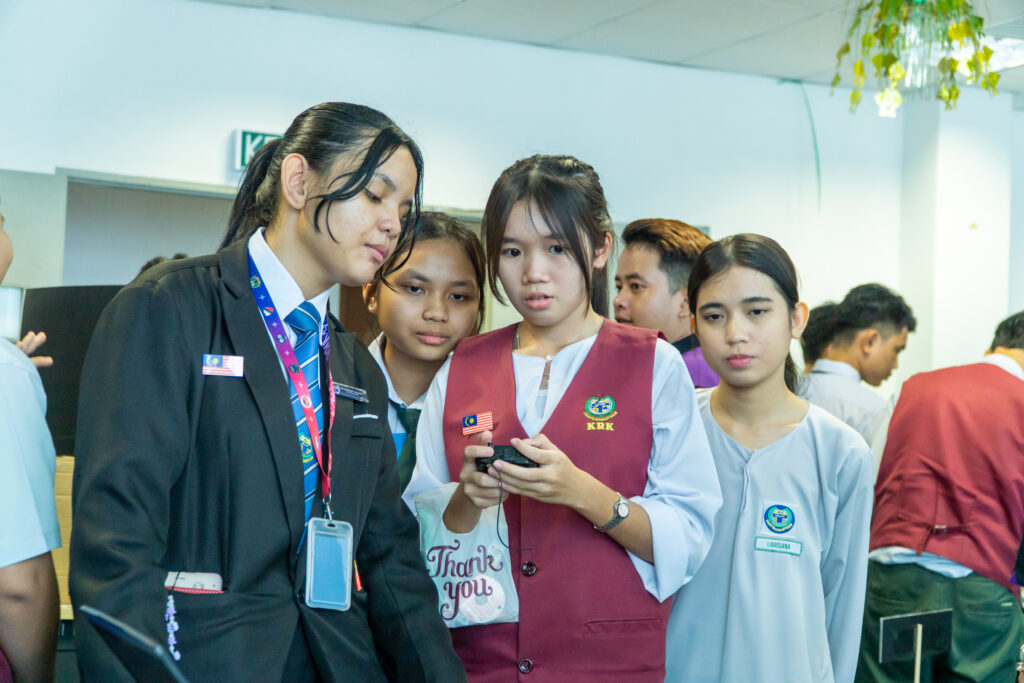
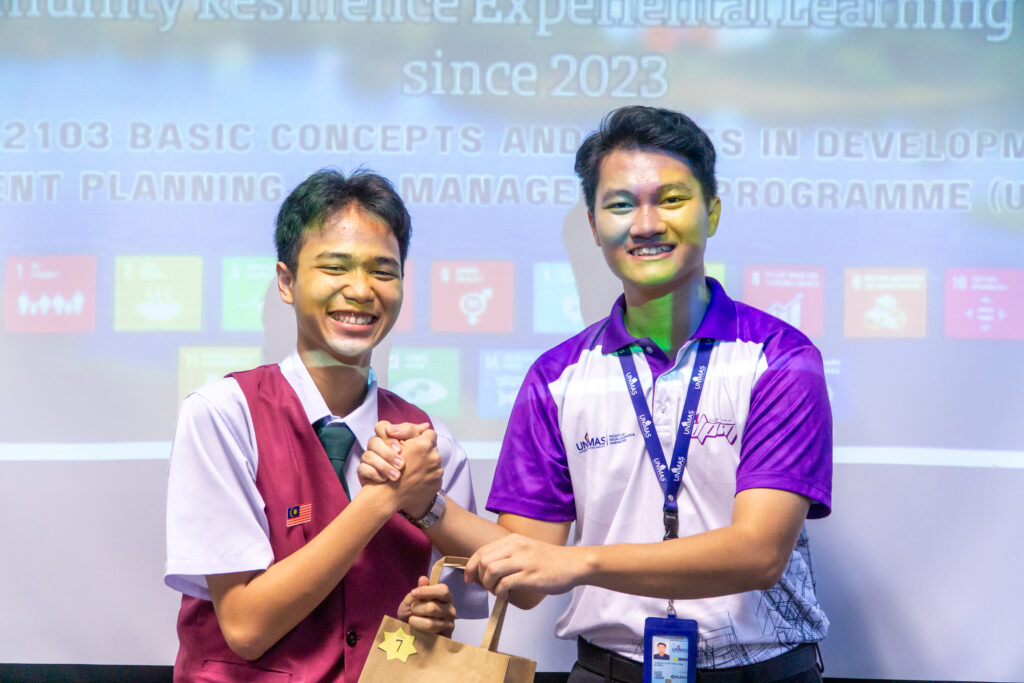
FSSH – A Partner for Social Change!